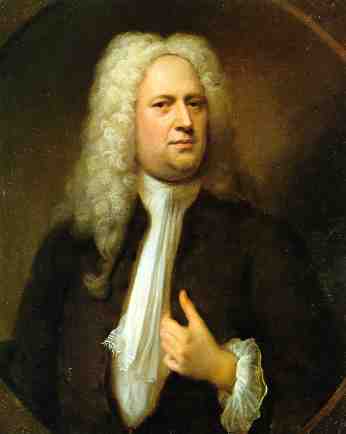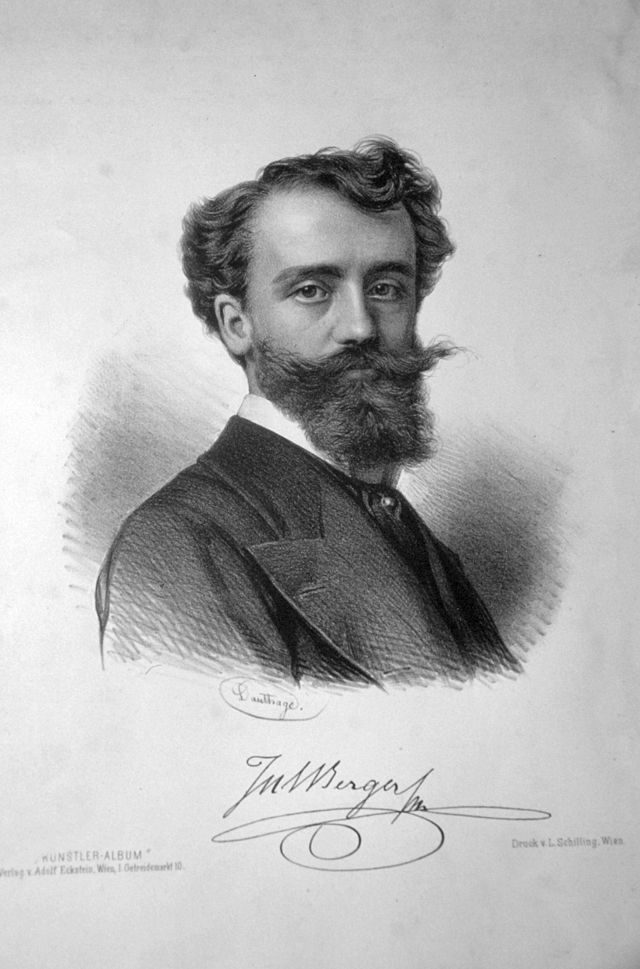George Friedrich Handel (1685-1759).
- Profession: Composer.
- Residences: Halle, London.
- Relation to Mahler:
- Correspondence with Mahler:
- Born: 23-02-1685 Halle, Germany.
- Died: 14-04-1759 London, England.
- Buried: Westminster Abbey, London, England.
George Frideric (or Frederick) Handel was a German-born, British Baroque composer who spent the bulk of his career in London, becoming famous for his operas, oratorios, anthems and organ concertos. Born in a family indifferent to music, Handel received critical training in Halle, Hamburg and Italy before settling in London (1712), and became a naturalized British subject in 1727. He was strongly influenced both by the great composers of the Italian Baroque and the middle-German polyphonic choral tradition.
Within fifteen years, Handel had started three commercial opera companies to supply the English nobility with Italian opera. Musicologist Winton Dean writes that his operas show that “Handel was not only a great composer; he was a dramatic genius of the first order.” As Alexander’s Feast (1736) was well received, Handel made a transition to English choral works. After his success with Messiah (1742) he never performed an Italian opera again. Almost blind, and having lived in England for nearly fifty years, he died in 1759, a respected and rich man. His funeral was given full state honours, and he was buried in Westminster Abbey.
Born the same year as Johann Sebastian Bach and Domenico Scarlatti, Handel is regarded as one of the greatest composers of the Baroque era, with works such as Water Music, Music for the Royal Fireworks and Messiah remaining steadfastly popular. One of his four Coronation Anthems, Zadok the Priest (1727), composed for the coronation of George II of Great Britain, has been performed at every subsequent British coronation, traditionally during the sovereign’s anointing. Handel composed more than forty operas in over thirty years, and since the late 1960s, with the revival of baroque music and historically informed musical performance, interest in Handel’s operas has grown.




